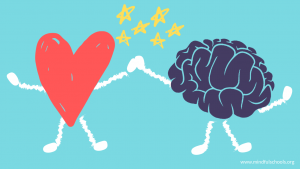 Although some children outgrow their ADHD, many don’t and so about 5% of the adult population in the U.S. continues to have symptoms of distractibility, impulsivity, memory problems, and difficulties with emotional regulation, time management, planning, and organization. When a person with these ADHD symptoms gets married, these symptoms eventually interfere with their productivity and happiness in the marriage.
Although some children outgrow their ADHD, many don’t and so about 5% of the adult population in the U.S. continues to have symptoms of distractibility, impulsivity, memory problems, and difficulties with emotional regulation, time management, planning, and organization. When a person with these ADHD symptoms gets married, these symptoms eventually interfere with their productivity and happiness in the marriage.
For example, while the spontaneity of someone with ADHD may be attractive to a potential partner, the ADHD person’s focus on the present and consequent lack of follow-through may become unwelcome to the non-ADHD spouse as time passes. A person with ADHD experiences the world in terms of now and not now. Being spontaneous is living in the now. Memory is about the past and planning is about the future, both not now. People with ADHD often excel at enjoying the present but have difficulty when it comes to taking care of things later on.
Each of the difficulties mentioned above for the ADHD person can contribute to problems in a marriage. What tends to happen it that the problematic behavior of the person with ADHD generates a response in the non-ADHD spouse that itself becomes a problem in the relationship. The person with ADHD promises their spouse to take care of a task later on, which is in the not now. When they make the promise, they do intend to carry it out later on. However, later on they are in a new present moment. When they made the promise is now in the past, the not now. They forget to do the task. Forgetting is something that happens to us all occasionally. But for the person with ADHD, the forgetting happens over and over.
The non-ADHD spouse gets tired of the forgotten promises and the undone tasks. They often tell themselves that if they don’t do it, it won’t get done. So, they often wind up doing more and more of the household tasks and wind up resenting it more and more. One thing we all do is generate attributions, or explanations, to ourselves for why things happen, particularly things that happen to us. The non-ADHD spouse winds up thinking negative things about their partner. “They’re lazy, they don’t care, they think of me as their servant.” They can begin relating to their ADHD spouse as another child in the family who has to be taken care of.
In the meantime, the person with ADHD, who tries for a while to improve their behavior after being criticized by their non-ADHD spouse, eventually comes to believe that whatever they do is not good enough and they begin to think that their efforts won’t ever be recognized. The ADHD spouse often loses their motivation to keep trying. A vicious cycle of criticism and avoidance develops between the two spouses that can ruin the marriage if unrecognized and left untreated.
Melissa Orlov went down this spiral, but rather than let her marriage be destroyed, decided to change her responses to her ADHD husband and so she saved her marriage. She used what she learned the hard way and wrote two books to help couples, one or both of whom have ADHD, to save their marriage. The book titles are The ADHD Effect on Marriage and The Couple’s Guide to Thriving with ADHD. She also has a website, www.adhdmarriage.com, devoted to providing up-to-date information to couples struggling with ADHD in their marriage.
She states that the spouse with ADHD first needs to recognize that they have ADHD and then needs to seek treatment for it. The treatment is often medication but not always so. Then both partners need to change their incorrect attributions about the others’ behavior and trade their destructive responses to each other for positive methods to identify day-to-day problems and develop strategies to solve these problems. She acknowledges that this process is not easy but, based on the imperfect but happy marriage she now says she has, she encourages her readers to make the efforts to save their marriages too.
If you are the spouse with ADHD or the spouse without ADHD and you want to save your marriage, then you can start with checking out Melissa Orlov’s website, read one or both of her books or get personal help from one of the therapists at STA who specializes in helping people with ADHD. Call us at 201-488-6678 if you want help to make the changes that are likely to improve your marriage.

